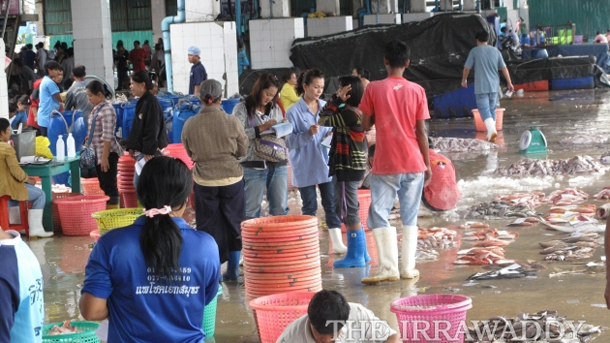Rights groups in Thailand have spoken out against a plan by the Thai Ministry Labor Department to force migrant women to return to their countries of origin if they become pregnant during their stay in the Kingdom.
The move, which the Thai government said was aimed at combating human trafficking, will require women to leave the country to give birth, but will also allow them to return after their child is born, according to Labor Minister Padermchai Sasomsap.
“It is a desperate attempt by the Thai government to appease the anti-trafficking lobbyists, but at the sacrifice of the rights of migrant women,” Jackie Pollock, a founder of the Migrant Assistance Program (MAP), told The Irrawaddy on Tuesday.
“Obviously, it will have no impact whatsoever on trafficking. It’s completely unrelated to trafficking,” she said, adding that previous attempts to deport migrant women have been dropped following outcries from civil society groups.
This time, however, the Thai government has been careful to avoid using the word “deport,” saying instead that the women would be “allowed to return home,” said Pollock.
In a report on Tuesday, The Bangkok Post quoted Padermchai as saying that the measure would not violate the rights of migrant women, and was necessary to improve Thailand’s record for human trafficking.
Referring to the US State Department’s watch list of countries that have failed to control human trafficking activities, Padermchai said, “We must have a clear regulation, otherwise we will be unable to get away from the Tier 2 watch list.”
The Tier 2 watch list is made up of nations whose governments do not fully comply with the minimum standards of the Trafficking Victims Protection Act, but are making significant efforts to comply with those standards. Thailand has been on the list for three consecutive years.
Andy Hall, a migrant expert and researcher at the Institute for Population and Social Research at Thailand’s Mahidol University, said that deporting pregnant women would not do anything to help improve Thailand’s record on trafficking.
“It’s absolutely ridiculous, and it just shows how much the government has no capacity to address the trafficking issue, if they think that deporting pregnant women is going to help anything,” said Hall.
The Thai government “should be looking at social protection policies for migrant women,” not talking about deporting them, said Pollock.
Instead, she said, “They’re putting in a policy which will put women at further risk, because women will try to hide the fact that they’re pregnant and they won’t seek medical care.”
Thailand hosts around 2.5 million impoverished Burmese who have fled their homes to work low-skilled jobs as domestic servants or manual laborers.

















